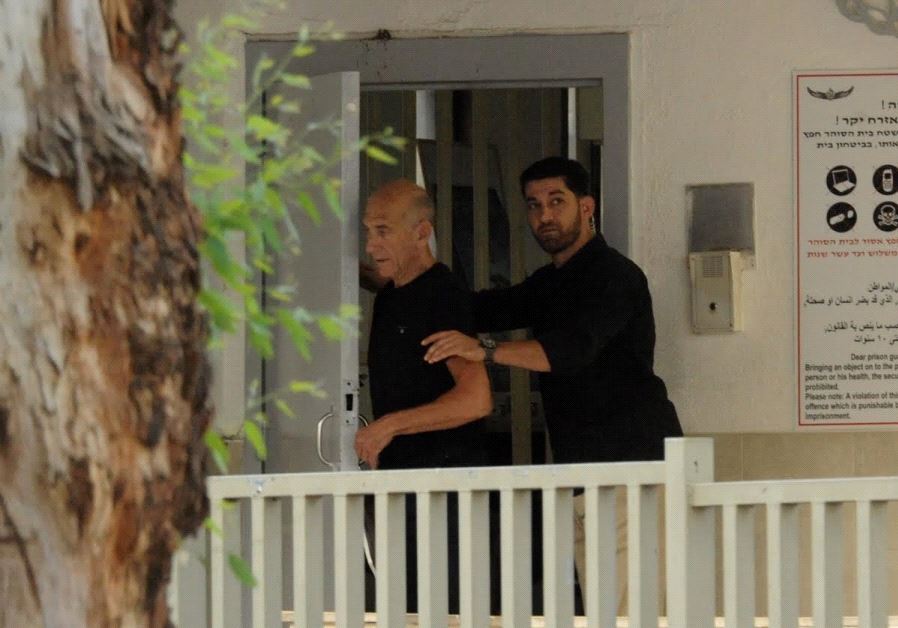Ex-PM Olmert released from jail, ending one of Israel's biggest corruption sagas
Former premier Ehud Olmert is released early after a 16-month imprisonment that marked one of Israel's biggest and most shocking corruption affairs.
 FORMER PRIME MINISTER Ehud Olmert being released from prison(photo credit: AVSHALOM SASSONI)Updated:
FORMER PRIME MINISTER Ehud Olmert being released from prison(photo credit: AVSHALOM SASSONI)Updated: